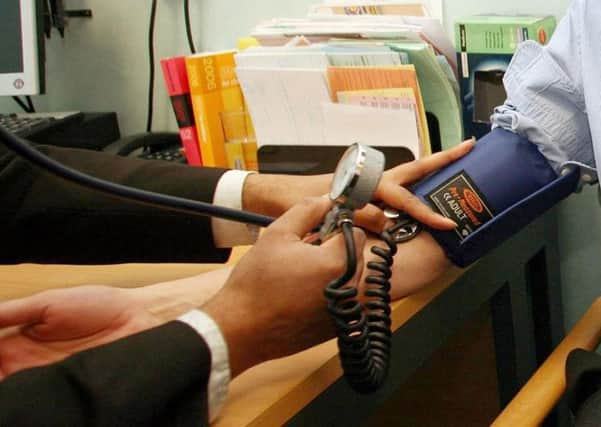Dr Richard Vautrey: Act now to save our GP surgeries as NHS crisis grows


The new poll answered by close to 3,000 practices a focused on the state of the local GP workforce and the financial stability of services.
The results on both fronts were grim.
In Yorkshire, the figures were worse than the national average, with close to 40 per cent of GP practices recording imminent retirements and a further six per cent saying that they had staff thinking of leaving the UK altogether.
Advertisement
Hide AdAdvertisement
Hide AdEven more worryingly, nearly 300 practices across England – 16 in our region – said they were financially unsustainable and effectively looking at the prospect of closing.
A further 600 practices nationally said their financial position was weak and they were having to make plans to try and resolve the situation, with 31 of them in Yorkshire.
Only five per cent of practices in England said their finances were in a strong position, a sign of just how much of a problem we face.
The impact on patients of these findings is already being felt. Many GP practices are struggling to cope with a surge in demand for care, especially from an ageing population with complex health problems that increasingly needs to be cared for in the community.
Advertisement
Hide AdAdvertisement
Hide AdThe current 10-minute recommended time for each patient is utterly inadequate in these circumstances. I regularly see patients who come with a list of problems, all of which are important and each one in turn needs to be dealt with properly, and it can often be the final one in the list that turns out to be the most important and requires the longest time to deal with.
In this stressful and overworked climate, where every day GPs fear they’ll make mistakes that could lead to patient complaints or serious harm, existing GPs are, as this survey indicates, taking the option to reduce the risk of burnout and retire as soon as they are able to or head for health systems in Canada and Australia that are less pressurised.
Conversely, many medical graduates are thinking twice about starting a career in general practice. Last year a record 600 GP trainee posts were left unfilled, with the Midlands and the North particularly badly affected.
This shrinkage of the workforce results in a vicious circle where lack of staff caused by a difficult environment actually adds yet more pressure on GP services and its remaining workforce, meaning fewer doctors to provide appointments
Advertisement
Hide AdAdvertisement
Hide AdUnderpinning this shortage in staff, there is also a deeper funding crisis eating away at the very foundations of general practice. Despite the huge increase in pressure, there has actually been a real term decline in funding.
At the same time, the cost of keeping GP services going has steadily increased, with rises in the cost of utility bills, upkeep for buildings and staff costs now accounting for almost two-thirds of budgets. This is, of course, before we get to the actual cost of providing services to the increasing numbers of patients coming through the surgery door.
The sad fact is that this survey confirms the warnings that the BMA, other healthcare professionals and patients have been saying for years. So far politicians have not appreciated the sheer scale of this crisis. Their response has been either to provide piecemeal offers of help without any long term commitment or incredible statements about how GP services should somehow be delivering more.
Ministers have said they will recruit 5,000 GPs by 2020 despite the fact it takes eight to 10 years to train a family doctor. Even if medical graduates were wanting to become GPs in their droves, it is practically impossible to deliver this kind of increase in this timeframe.
Advertisement
Hide AdAdvertisement
Hide AdAnd most surprising, Ministers seem to be obsessed with GPs offering routine appointments on a Sunday afternoon but never with a realistic commitment to provide the funding to deliver this, or an understanding of how stretching an already overstretched service more thinly could make matters worse for patients not better.
When just five per cent of practices are reporting they have strong finances, how on earth are GP services supposed to deliver more on their current over- stretched budgets?
The BMA has been very clear that with general practice in a state of emergency we urgently need a rescue package that stabilises the current services we have and prevents practices from disappearing round the country.
At its core, there needs to be a realistic plan to recruit and then retain more GPs, nurses and other support staff, and the long term funding to underpin this expansion of the practice team.
Advertisement
Hide AdAdvertisement
Hide AdThe BMA and local GPs have been coming up with these ideas – for example on how we can rebuild robust community health care teams serving every community. As this survey demonstrates, a well-rounded rescue package needs to be the priority, not a policy after thought. General practice has had enough promises and fanciful political plans; we need a detailed, fully-funded plan now or we risk patient services disappearing for good.
Dr Richard Vautrey is deputy chair of the BMA’s GP committee and a GP in Leeds.